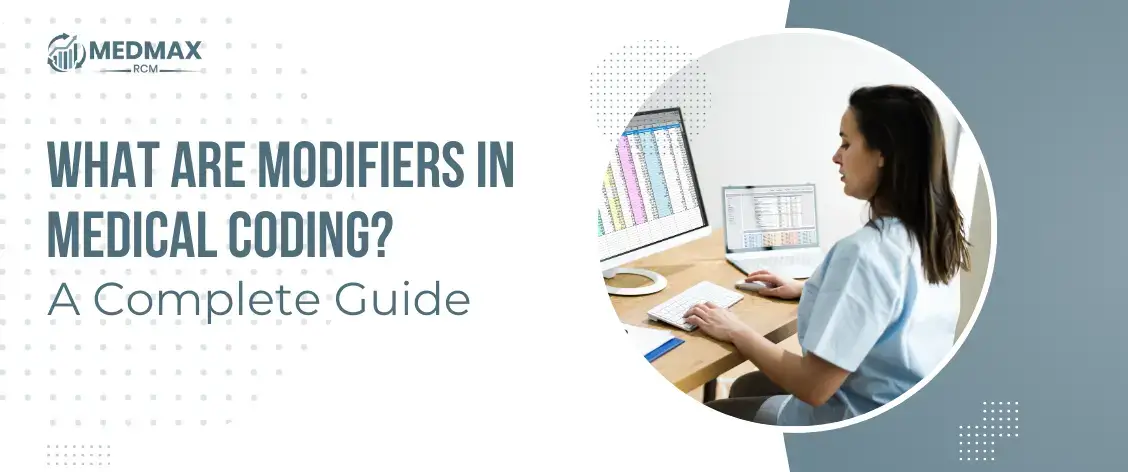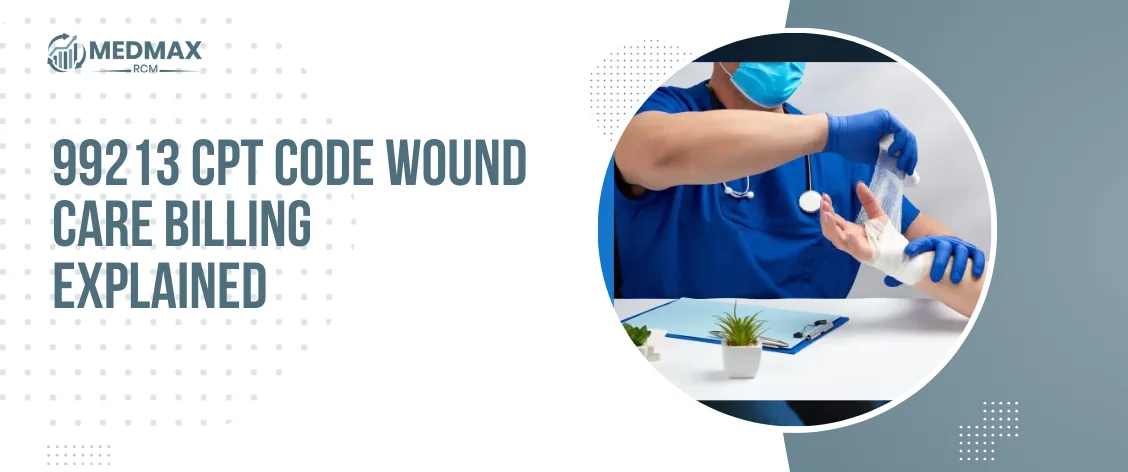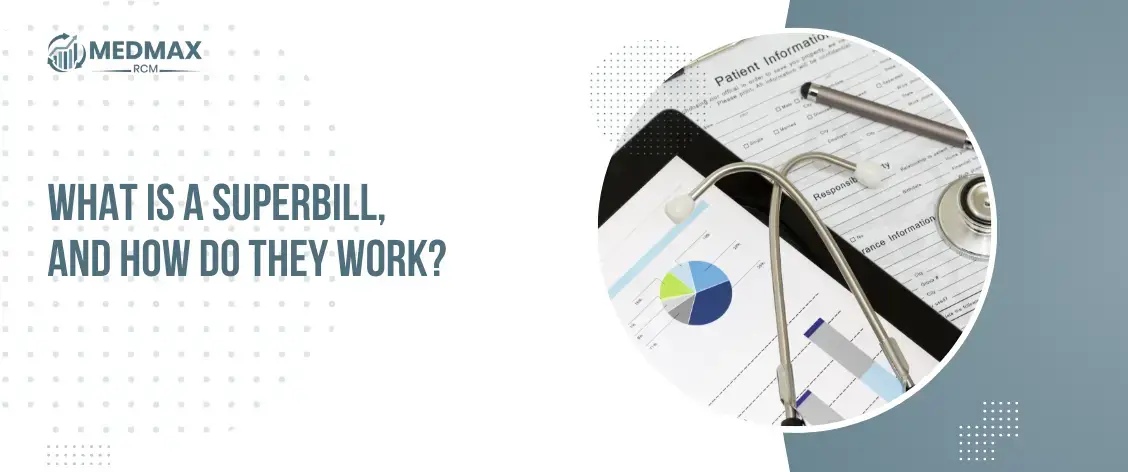
What are modifiers in Medical Coding: A Comprehensive Guide
What are Modifiers in Medical Coding? Modifiers are two-digit codes that are added to a medical code to provide additional information about the service or procedure provided. Modifiers are used to indicate specific circumstances surrounding the service or procedure performed. The purpose of using modifiers is to provide additional context that insurance companies and other entities use to determine appropriate reimbursement levels.
There are numerous types of modifiers in medical coding, including informational modifiers, performance modifiers, and administrative modifiers. Some common examples of modifiers include -22, -25, -59, and -76.
Table of Contents
ToggleWhen to Use Modifiers in Medical Coding
Modifiers are used in various circumstances where additional information is needed to accurately describe a service or procedure. They help to provide clarity to insurance companies and other entities about the nature of the service or procedure performed. Modifiers can affect the accuracy of medical claims and can have an impact on insurance coverage and reimbursement.
It is important to correctly use modifiers to ensure that claims are not denied or delayed. Incorrect use of modifiers can lead to claim denials, improper payment, and potential legal or financial consequences.
Types of Modifiers in Medical Coding
Modifiers in medical coding fall into one of three categories: informational, performance, and administrative. Informational modifiers provide additional context about the service or procedure. Performance modifiers indicate the extent of a service or procedure provided. Administrative modifiers provide additional information related to the billing or reimbursement process.
Some examples of modifiers in each category include:
Informational: -AA, -LT, -RT
Performance: -22, -52, -76
Administrative: -AS, -GC, -GZ
How Modifiers Impact Medical Billing and Reimbursement?
Modifiers can have a significant impact on the amount paid for medical services or procedures. They can also impact insurance coverage and reimbursement. Accurate use of modifiers can help to ensure that claims are paid correctly and in a timely manner.
Incorrect use of modifiers can lead to claim denials, delays in payment, and potential financial or legal consequences. As such, it is essential to ensure that modifiers are used accurately and appropriately.
Common Examples of Modifiers in Medical Coding
There are several common modifiers used in medical coding that are frequently used to indicate specific circumstances surrounding a service or procedure. These include:
- Modifier 22: Increased procedural services
- Modifier 25: Significant, separately identifiable evaluation and management service by the same physician on the same day of the procedure or other service
- Modifier 59: Distinct procedural service
- Modifier 76: Repeat procedure or service by same physician
- These modifiers provide additional information that helps insurance companies and other entities determine appropriate reimbursement levels.
Guidelines for Correctly Using Modifiers in Medical Coding
Insurance companies and government entities set rules and regulations for modifier usage. It is essential to follow these guidelines to ensure that modifiers are used correctly and appropriately. Best practices for using modifiers include ensuring that the modifier accurately reflects the circumstances surrounding the service or procedure performed, and avoiding common mistakes in modifier usage.
Some tips for avoiding common mistakes in modifier usage include ensuring that modifiers are used only when necessary, using modifiers that accurately reflect the service or procedure performed, and avoiding incorrect use of the -59 modifier to bypass bundling rules.
Common Errors in Modifier Usage
There are several common errors that can occur when using modifiers in medical coding. These include unbundling of procedures and services, incorrect use of the -51 multiple procedure modifier, use of the -59 modifier to bypass bundling rules, and use of the -25 modifier incorrectly to increase payment.
These errors can lead to claim denials, delays in payment, and potential legal or financial consequences. It is essential to ensure that modifiers are used correctly to avoid these potential pitfalls.
The Importance of Proper Modifier Usage in Medical Coding
Proper usage of modifiers in medical coding is essential to ensure that claims are paid correctly and in a timely manner. It is also essential to comply with regulatory guidelines to avoid legal or financial consequences. Correct use of modifiers provides insurance companies and other entities with the necessary context to determine appropriate reimbursement levels and helps to prevent incorrect payment.
Proper training and education on modifier usage can help to avoid common mistakes and ensure that claims are accurately coded. Medical coding companies, such as Medmax, can provide expert guidance and support in proper modifier usage to ensure that claims are paid correctly and in a timely manner. With the help of Medmax medical coding company, healthcare providers can ensure proper usage of modifiers in their billing process, leading to increased revenue and minimized claim denials.
Best Practices for Implementing Modifier Usage
- Establish clear guidelines for modifier usage
- Provide training and education on proper usage to staff members
- Regularly review and update modifier usage policies and procedures
The Role of Medical Coding Companies in Modifier Usage
- Providing expert guidance and support in modifier usage
- Conducting regular audits to ensure compliance with regulatory guidelines
- Identifying and addressing areas of concern or potential errors in modifier usage
The Future of Modifier Usage in Medical Coding
- The potential impact of technological advancements on modifier usage
- The role of regulatory bodies in the development of modifier guidelines and policies
- The ongoing need for accuracy and compliance in modifier usage to ensure proper reimbursement and avoid legal or financial consequences
Tips for Healthcare Providers on Modifier Usage
- Familiarize yourself with common modifiers and their appropriate usage
- Ensure that modifiers are used only when necessary and accurately reflect the circumstances surrounding the service or procedure performed
- Regularly review modifier usage policies and procedures to ensure compliance with regulatory guidelines
Final Thoughts!
Proper usage of modifiers in medical coding is essential to ensure accurate reimbursement and avoid legal or financial consequences. By following best practices and seeking guidance and support from medical coding companies like Medmax, healthcare providers can ensure proper usage of modifiers and improve their billing processes. With ongoing education and awareness, the future of modifier usage in medical coding can continue to evolve and improve, benefiting both healthcare providers and patients alike

Emily Thompson
Emily Thompson is a Revenue Cycle Management (RCM) Specialist with extensive experience in the medical billing industry. She helps healthcare organizations and medical billing companies improve claim efficiency, reduce A/R backlogs, and implement data-driven RCM strategies. Emily’s articles focus on end-to-end medical billing services, denial prevention, and technology-driven revenue optimization for healthcare practices across the U.S.








